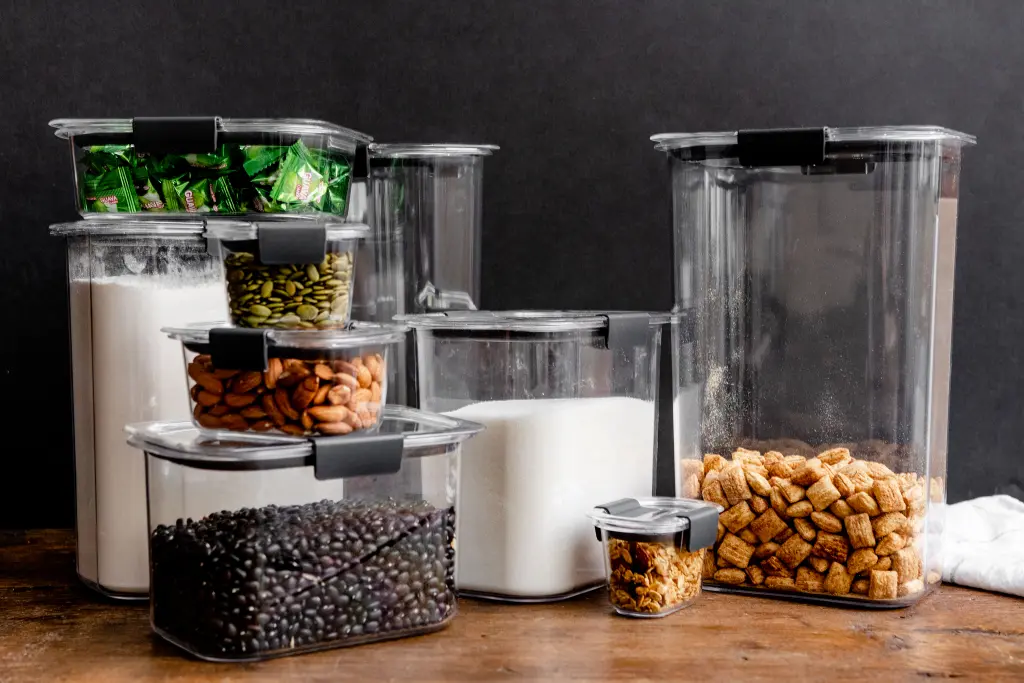Opting for eco-friendly food storage containers is an excellent choice for individuals looking to adopt a lower-waste lifestyle. Here are some considerations and options for sustainable food storage:
- Material:
- Glass: Glass containers are a sustainable option as they are durable, recyclable, and do not leach harmful chemicals into your food. They are also versatile, suitable for storing, reheating, and serving food. Look for containers made from recycled glass for an even more eco-friendly option.
- Stainless Steel: Stainless steel containers are durable, long-lasting, and recyclable. They are a great choice for those who want a plastic-free option. Stainless steel containers are also resistant to stains and odors.
- Silicone: Silicone is a flexible and durable material that is a good alternative to plastic. Look for silicone food storage bags or lids that can stretch over various container sizes. Silicone is generally safe for the environment and can be recycled.
- Bamboo: Containers made from bamboo fiber are biodegradable and compostable. They are lightweight and often come with lids made from bamboo or other eco-friendly materials.
- Beeswax Wraps: Beeswax wraps are a reusable and compostable alternative to plastic wrap. These wraps are often made with organic cotton coated in beeswax, jojoba oil, and tree resin. They can be used to cover bowls or wrap food directly.
- Airtight Seals:
- Look for containers with airtight seals made from eco-friendly materials. This will help preserve the freshness of your food and reduce the need for disposable plastic wraps or bags.
- Biodegradability and Compostability:
- Choose containers that are biodegradable or compostable. This ensures that at the end of their lifecycle, the containers won’t contribute to long-term environmental waste.
- Recyclability:
- Check whether the materials used in the containers are recyclable. This is especially important for glass and metal containers, which can be recycled multiple times.
- Reusable Options:
- Prioritize reusable containers over single-use options. Look for containers that are durable and built to last, reducing the need for frequent replacements.
- Minimal Packaging:
- Consider the packaging of the containers. Choose brands that use minimal and eco-friendly packaging to further reduce waste.
- Local and Sustainable Brands:
- Support local and sustainable brands that prioritize environmentally friendly materials and manufacturing processes.
- Easy Disassembly:
- If the container has multiple parts, check if it can be easily disassembled for thorough cleaning and recycling.
- Certifications:
- Look for containers that have relevant certifications indicating their environmental impact, such as being BPA-free, phthalate-free, or meeting specific eco-friendly standards.
By choosing eco-friendly food storage containers, you can contribute to a lower-waste lifestyle while still efficiently storing and preserving your food.

